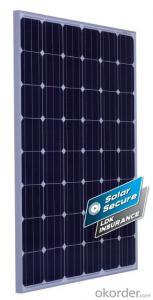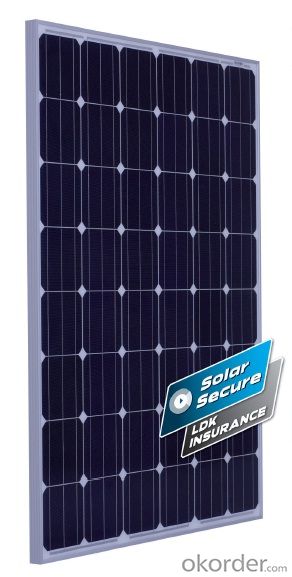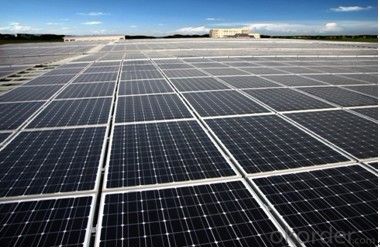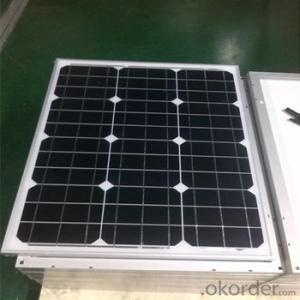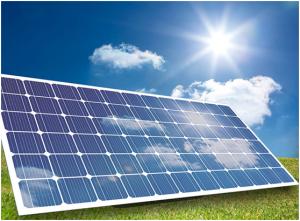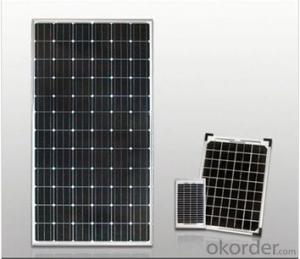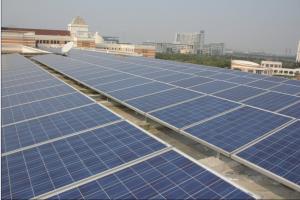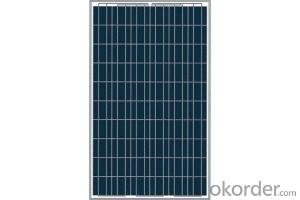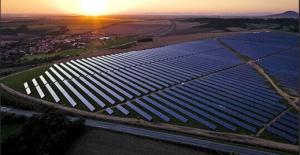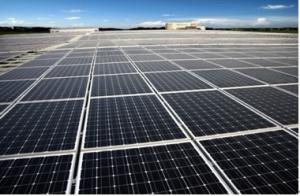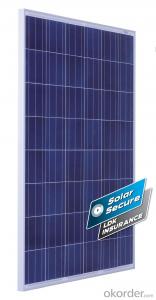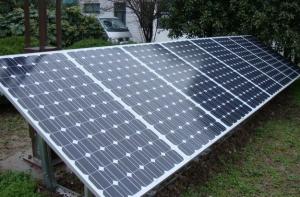LDK 48-Cell Mono Module 210W Entire Module Certified CE UL TUV for Wind Turbine or Solar Panels
- Loading Port:
- China Main Port
- Payment Terms:
- TT or LC
- Min Order Qty:
- -
- Supply Capability:
- -
OKorder Service Pledge
OKorder Financial Service
You Might Also Like
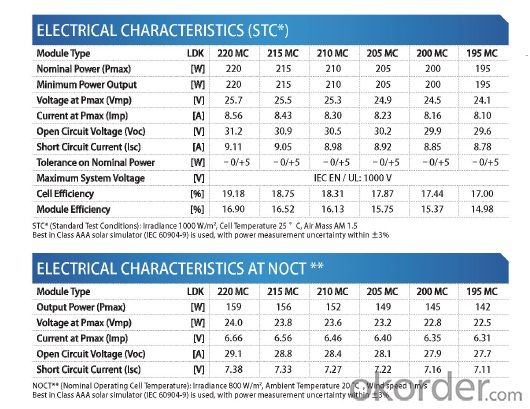
Dimensions(Laminate):1320 x 986 x 35 mm [51.97 x 38.82 x 1.38 in]
Solar Cells:48 (6x8) monocrystalline silicon -
156 x 156 mm [6 inch] solar cells
Why US?
· Industry leading module power output warranty of 25 years
· International quality and safety certifications
· Manufactured in ISO 9000 certified factories
· High-reliability with guaranteed 0/+5W peak power classification
· Excellent performance under low light environments
· Entire module certified to withstand high wind and snow loads
Warranty
· 10 years for product defects in materials and workmanship
· First 12 years for 90% of warranted minimum power
· Remaining 25 years for 80% of warranted minimum power
Vertically integrating business model enables us to
· Consistently build high quality and reliable PV products.
· Optimize our cost structure to deliver price-competitive products.
· Adopt cutting-edge product and production technologies.
· Develop the most advanced manufacturing methods.
· Minimize carbon emissions throughout our closed loop production process.
Certification
· IEC:IEC 61215, IEC 61730 (1&2), conformity to CE
· UL 1703 2002/03/15 Ed:3 Rev:2004/06/30
· ULC/ORD-C1703-01 Second Edition 2001/01/01
· UL and Canadian Standard for Safety Flat-Plate
· ISO 9001: 2008 Quality Management Systems
· CEC Listed: Modules are eligible for California Rebates
· PV Cycle: Voluntary module take back and recycling program
· MCS Certificate
After-sales Services Undertakings
1. During the equipment commissioning period, the company will send scheduler to commissioning to ensure debugging smoothly and a one-time test commissioning.
2. The company is responsible for professional users’ on-site operator training and technical exchange.
3. The long-term tracking service system: we practice lifelong quality of our product tracking service, and we also will take effective measures and solutions for the user of the technical issues and equipment problems.
4. Regularly listen to opinions and suggestions of users, to provide users with new trends in technological innovation, new product information and enhance mutual understanding.
5. Any problems, the company will provide solutions for users within 48 hours.
FAQ
1. How long will my inquiry get response?
Your inquiry related to our products or prices will be replied within 24 hours.
2. Can I get professional service and suggestion?
Well-trained and experienced staffs to answer all your questions in fluent English.
3. Do you accept OEM or customized design?
OEM & ODM, any your customized lightings we can help you to design and put into product.
4. What if I need specific design?
Distributorship are offered for your unique design and some our current models.
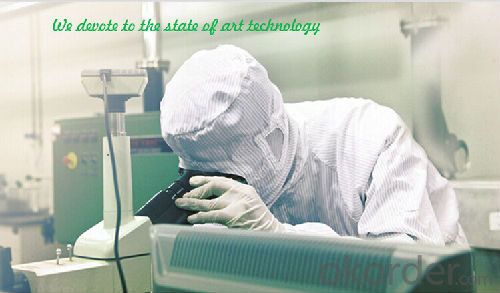
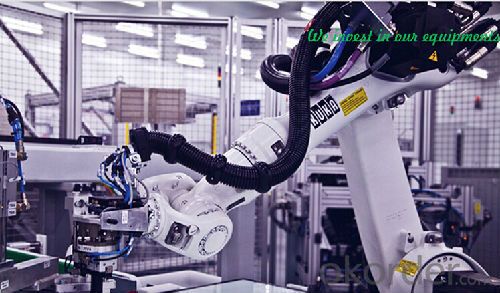
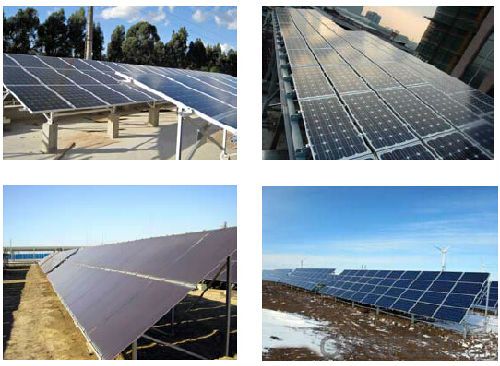
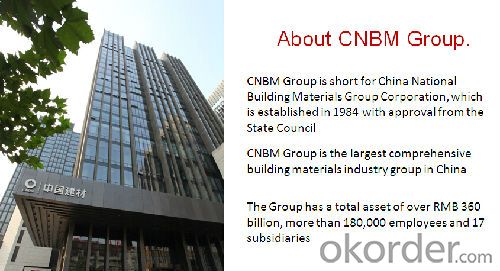
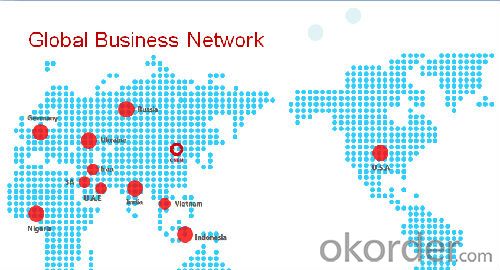
- Q: if you move a solar panel or there was a vibration that caused the panel to move, would that affect it?
- probably not much. If you had it at an optimal angle to the sun and it vibrated out of that position then you could be loosing some efficiency.
- Q: Can solar panels be installed on camping sites?
- Yes, solar panels can be installed on camping sites. They provide a sustainable and reliable source of energy, allowing campers to power their devices and equipment while minimizing the environmental impact.
- Q: Can cold light make solar panels power
- light - heat - dynamic - electric conversion method through the use of solar radiation generated by thermal power, usually by the solar collector will absorb the heat energy into the refrigerant, and then drive the turbine power generation. The latter process is the light-heat transfer process; the latter process is the heat-to-conversion process, which is the same as the conventional thermal power generation.
- Q: Is it really necessary to make solar panels that expensive?
- Unfortunately, yes. Solar panels require high-grade silicon which is very expensive. Also, volume sales aren't yet high enough to push down prices. Don't worry though, as people buy them and the technology matures it'll get cheaper. I remember DVD players costing $2000+. Now you can get one for less than $30.
- Q: Can solar panels be used to power a mining operation?
- Yes, solar panels can be used to power a mining operation. Solar energy can be harnessed and converted into electricity through photovoltaic panels. This electricity can then be used to power various mining processes such as crushing, grinding, transportation, and ventilation systems. However, the suitability of solar panels for powering a mining operation would depend on factors such as the required energy demand, availability of sunlight, space for installation, and the feasibility of integrating solar power with existing mining infrastructure.
- Q: Monocrystalline panels are sooo expensive! Thanks for reading.
- Since you are asking for a rather technical answer you should be aware that solar panels come in several varieties. Two broad categories are photovoltaic panels which have achieved marketable efficiencies of around 24% and solar thermal panels which are routinely achieving efficiencies of between 60 to 80% while they are also much cheaper than photovoltaic panels. So the short answer is solar thermal panels. But what can you do with solar thermal energy. The answer is just about everything you can do with light energy. Sometimes additional equipment makes the efficiency drop to near that of photovoltaic panels. The trick is to keep the devices as simple and as efficient as possible. Solar thermal can of course be used to heat our homes. But it can also be used directly for air conditioning. The type of air conditioner uses a slightly different principal but it is one of the oldest that was once used in ice houses before refrigerators. It is known as an absorption system. At some point you may want to make electricity from the sun's heat. The most efficient commercial systems are not photovoltaic but solar thermal. There are several commercial systems where increased scale improves efficiency. The most efficient is a solar parabolic dish system combined with a stirling engine. At around 30% efficiency it beats photovoltaic and other thermal systems. At this level of commercial development, the various systems are more often described as solar collectors rather than panels.
- Q: Are there solar panel systems that I can plug directly into my house to help reduce my electricity bill? If so, are they very expensive? Any help would be greatly appreciated!
- I wish it was that easy! Maybe it will be soon. But at this time, no, there isn't. And if you have a solar collection system, you have to have a way to store the energy when you're producing more than what you are currently using. That usually involves an expensive battery array. But it's necessary. The power coming directly from the solar panels will be erratic and sending it to the battery array for storage and then use allows for the home to draw a consistent level of power. And this battery system also allows for storage of electricity for use when the sun isn't shining like at night. The system should be set up to use your power first, then go to the grid. It should also allow for distribution to the grid when your system has stored all the power it can and that's when your meter will run backwards and the power company will be paying you! There are a lot of federal and state income tax rebates for alternative energy installation costs. Check out what Oregon might toss into the package along with the Feds and see where you might come out.
- Q: Can solar panels work in cloudy weather?
- Yes, solar panels can still generate electricity even in cloudy weather. While direct sunlight produces the most optimal conditions for solar panel efficiency, they can still function and generate power in cloudy weather due to their ability to convert diffused sunlight into electricity. However, the electricity output may be lower compared to sunny days.
- Q: How do I clean my solar panels?
- To clean your solar panels, start by turning off the system and ensuring the panels are cool to touch. Use a soft brush or sponge with mild detergent mixed in water to gently scrub away any debris or dirt. Rinse the panels with clean water and allow them to dry naturally. Avoid using abrasive materials or harsh chemicals, as they may damage the panels. Additionally, be cautious when working at heights and consider seeking professional help if needed.
- Q: Okay, so I have a science fair coming up soon and I need help with my project. SO - What should I use to demonstrate with the propeller? A toy boat? Plane? And I only have mini solar panels ; so how do I put the solar panels on the toy boat/plane to make the propeller move off of the sun's energy? Thanks. Steps please!
- Solar panels produce electricity. To move the propeller you need mechanical motion. An Electric motor converts from electrical to mechanical power. Most Solar Panels produce DC electricity as do batteries so you need a DC motor that is sized to match the Output of your solar panels. For small temporary projects like this I find that hot melt glue is great to assemble parts. Using a voltage meter you can expose your solar panels to a strong light (or one equal to what you expect during your demonstration) and measure the voltage across the terminals. This may help to size the motor. It depends upon the size of your propeller and how it is made. Your three choices are to use it to power an airplane, to power a boat underwater or to power a boat like an air boat. You might also use the air boat concept to make a car. (air car) The air boat might be the simplest to make but you will need a body of water to demonstrate the concept. The air car doesn't have such a requirement.
Send your message to us
LDK 48-Cell Mono Module 210W Entire Module Certified CE UL TUV for Wind Turbine or Solar Panels
- Loading Port:
- China Main Port
- Payment Terms:
- TT or LC
- Min Order Qty:
- -
- Supply Capability:
- -
OKorder Service Pledge
OKorder Financial Service
Similar products
Hot products
Hot Searches
Related keywords
